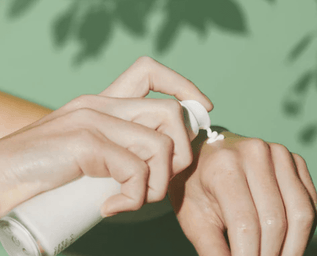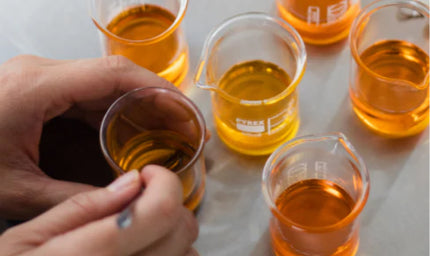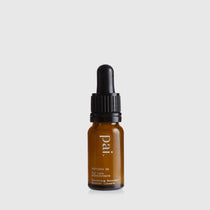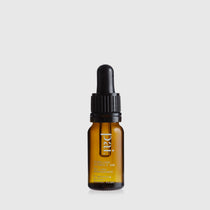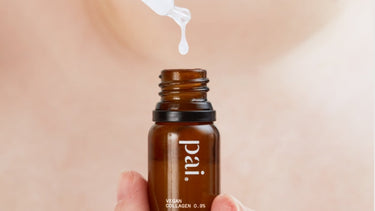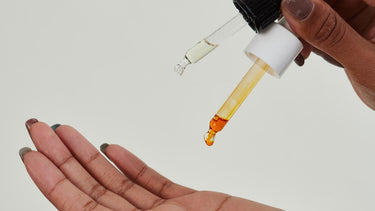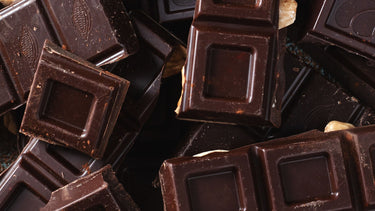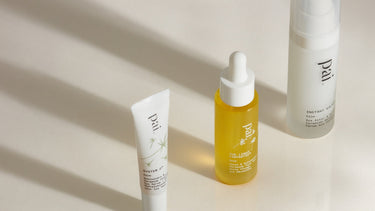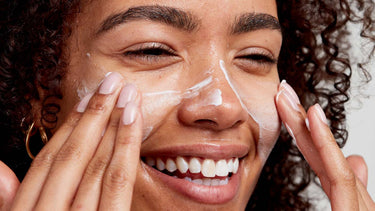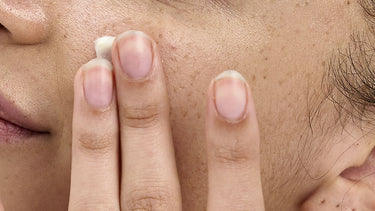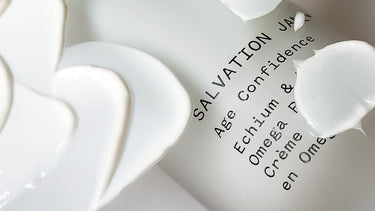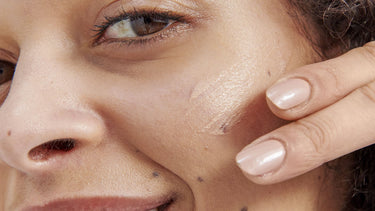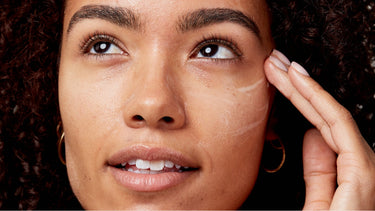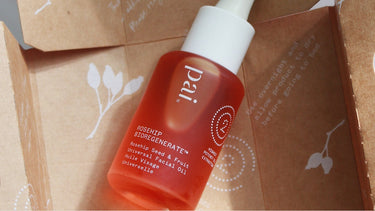You know how it can sometimes feel as if your skin has a mind of its own? That’s because it does. Well, its own microbiome at least; an ecosystem of bacteria that lives on the surface of the skin. And the importance of maintaining it is why prebiotic skincare ingredients have been an unstoppable trend in beauty in recent years – and we're all for it.
Because here’s where things get interesting – there’s ‘good’ bacteria and ‘bad’ bacteria on your skin, just as you have in your gut, and it’s vital we keep this in check. If we don’t, our skin’s microbiome will be out of balance, which is a recipe for inflammatory skin problems such as acne. Ingredients like probiotics and prebiotics can help to restore that natural balance for optimum skin health – and that's where Inulin comes in.
Our go-to natural prebiotic, Inulin is in plenty of our products (and with good reason). So here's everything you need to know about prebiotics and Inulin, from the difference between probiotics and prebiotics in skincare to the benefits and how you can use Inulin in your skincare routine.
What is Inulin?
Inulin is best known as a dietary fibre, present in foods including asparagus, bananas and garlic, which helps to maintain the microbiome in your gut. But while it can do all sorts of good things for your digestion via your diet or supplements, we're here to talk about topical Inulin.
An active skincare ingredient and humectant, Inulin is used to boost the skin’s tolerance and maintain its natural defences. It’s a type of prebiotic – a non-living ingredient that helps to feed good bacteria – that ensures our skin’s microbiome is protected and perfectly balanced for overall skin health.
Think of it as a lawn feed for the bacteria that you want to grow on your skin’s surface, to help protect it from external aggressors and keep your skin healthy.
Ours is derived from chicory root, though it can be sourced from sugarcane and other plants. COSMOS Natural-certified, cruelty free and Vegan Society approved, we only use suppliers that test this ingredient for its prebiotic properties.
Prebiotics vs probiotics
You might have heard about probiotics in skincare, too, and wonder how this fits in the picture. If prebiotics like Inulin are the ‘feed’ that help your skin's good bacteria to thrive, then probiotics are the 'live' microorganisms that live on the skin's surface and need feeding.
Most probiotic skincare, however, won't contain live microorganisms – because the preservatives in the formula would instantly cancel them out. Instead, you'll usually find ingredients derived from probiotics that have a similar benefit.
What are the benefits of Prebiotic Inulin in skincare?
Rebalances skin’s microbiome
Imagine your microbiota as a teeny tiny army of bacteria that lives on the uppermost surface of your skin, to help to strengthen the skin’s barrier. Applying Prebiotic Inulin is like giving them a hearty meal – or even shiny new weapons – to make sure they can stay fighting fit and always on guard. Our skin is exposed to so many external environmental factors, from weather changes to pollution, that this is an ingredient all skin types and concerns can benefit from.
Hydrates
We know how essential hydrated skin is for a happy barrier, and so adding Prebiotic Inulin - which is great at retaining moisture – is a no-brainer. As a humectant, it helps to draw moisture in to the skin from the environment, as well as slowing the evaporation of water to really hold it in.
Calms
The end result of protected, well-balanced skin is happier skin. By feeding the skin's microbiome and keeping this invisible shield healthy, you’ll reinforce your skin barrier and find skin looks and feels calmer all round. A must for sensitive skin and a handy tool to add to your routine when trying new products and actives.
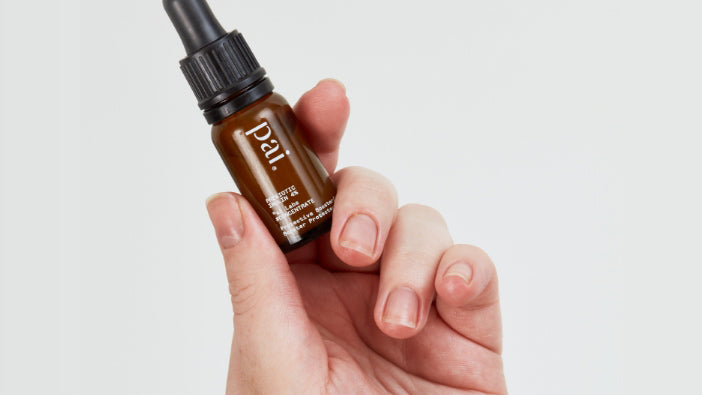
How to use Inulin in your skincare routine
There's no right or wrong way to get prebiotics into your daily skincare routine – but as you can tell, we're big fans of using Inulin for calmer and stronger skin. You'll find it in many of our formulas – and it's in all of our boosters too, to cushion our natural actives.
Book a free online skin consultation for tailored advice on how to add prebiotics into your routine.
























